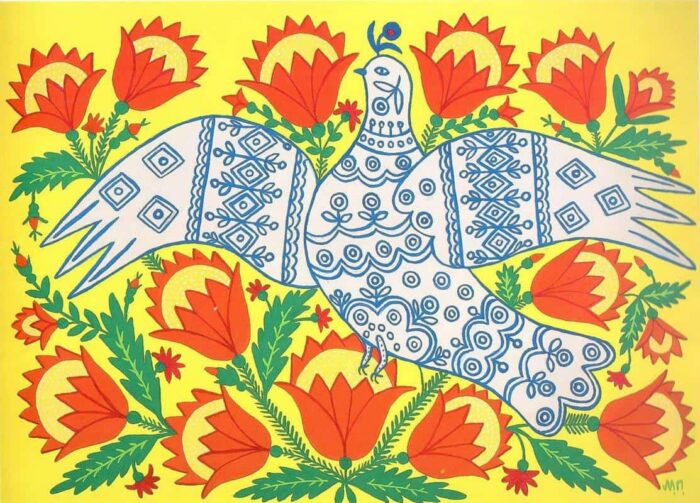
The war in Ukraine has entered its 25th day. When the conflict initially broke out I found myself incessantly drawn to the BBC and The Guardian to pore over each and every atrocity. Angst-ridden doom-scrolling was once again my modus operandi. However, about a week into the invasion, I came across the war diary of Yevgenia Belorusets who has been bearing witness to Russia’s war against Ukraine since the the annexing of Crimea in 2014.
Since I started reading her diary, I have managed to ween myself off the doom-laden treadmill of 24 hour news updates. Instead, I (strangely) look forward to Yevgenia’s daily entries. Her reflections on specific events; depictions of a city that is “something of a construction site—one that is not built, but dismantled”; and encounters with other local residents put a deeply affecting face on the conflict.
In front of the ruins yesterday, among shattered glass, deformed scraps of metal, and pieces of the roof, I met a woman: an elderly lady who was looking for cigarettes. The kiosk where she bought them every day was so badly damaged that all the glass covering the windows and doors had been blown out. The salesmen themselves were no longer around; the cigarettes lay unprotected in the shop window. The lady was asking everyone where to get a pack nearby. I suggested she leave the money in the shop window and take the pack, as a kind of self-service. Then I asked her why she decided to stay in Kyiv during these uncertain times.
She told me that her mother, who turned 100 three months ago, died this past week. In the war’s early days, it was unimaginable that she and her husband would leave the city. Now she was simply here. Maybe she would stay. Her eyes were shining; she even looked a little happy.
She was a mathematician, a scientist who came to Kyiv from Murmansk as a child. With many quips, she told me the tangled story of her family, saved time and again from war, hunger, and Stalin’s repressions. She spoke melodically and with a delicate touch, as if the words of the narrative had bound themselves together beforehand, only wanting for a listener. Despite her age, there was something young about her face, and she moved quickly and gracefully among stones and splinters. Our conversation didn’t last long, but I keep thinking back to it. Sometimes in war you have the feeling that you don’t want to lose other people, even after fleeting encounters. And now that I’ve described that meeting, I feel I did something to hold onto it.
As Yevgenia seeks to hold on to her encounter with this elderly lady, we (who are safe and sound, seated at our desks, dining tables or on our sofas) are brought face to face with the absurd nature of life in war and conflict. Sitting in juxtaposition to the ruined city, a mundane encounter with a lady looking for cigarettes is punctuated with details that crystallise the reality of this conflict.
Unlike the 3.3 million refugees who have already been displaced, here is a woman who could not leave her home; who now finds herself “simply” there; and has endured the impact of repression and war since long before Ukraine became an independent nation. Yet, Yevgenia also describes her “shining” eyes, her wit, and her quick and graceful movements. In this encounter, the darkness of the embattled city is juxtaposed by this lady’s light. A light that was not extinguished under Soviet rule and has not been extinguished by Putin’s invasion.
Perhaps, within Yevgenia’s need to “hold onto” this encounter, there is an unconscious need to hold onto ‘normality’ itself? As she has described in other encounters with people who remain in the city, there is a need to carry on with normal life, whether that is going out to buy a pack of cigarettes, serving people coffee or looking after other people’s homes. This is how people endure. This is how they stop the light from being extinguished.
As Leonard Cohen said:
“There’s a crack in everything. That’s how the light gets in.”
By continuing to bear witness to the war, Yevgenia ensures that the light gets through, revealing the human face of the conflict.
—
Remember, there are lots of ways to #StandWithUkraine. Like other schools in the UK, we joined in with ‘A Day for Ukraine’ and contributed to the Disasters Emergency Committee who are supporting displaced families. You can also check out the website: I Support Ukraine, or other charities such as the British Red Cross and Unicef for ways to help.
Image: A Dove Has Spread Her Wings and Asks for Peace by Ukraine’s best loved artist: Maria Prymachenko.